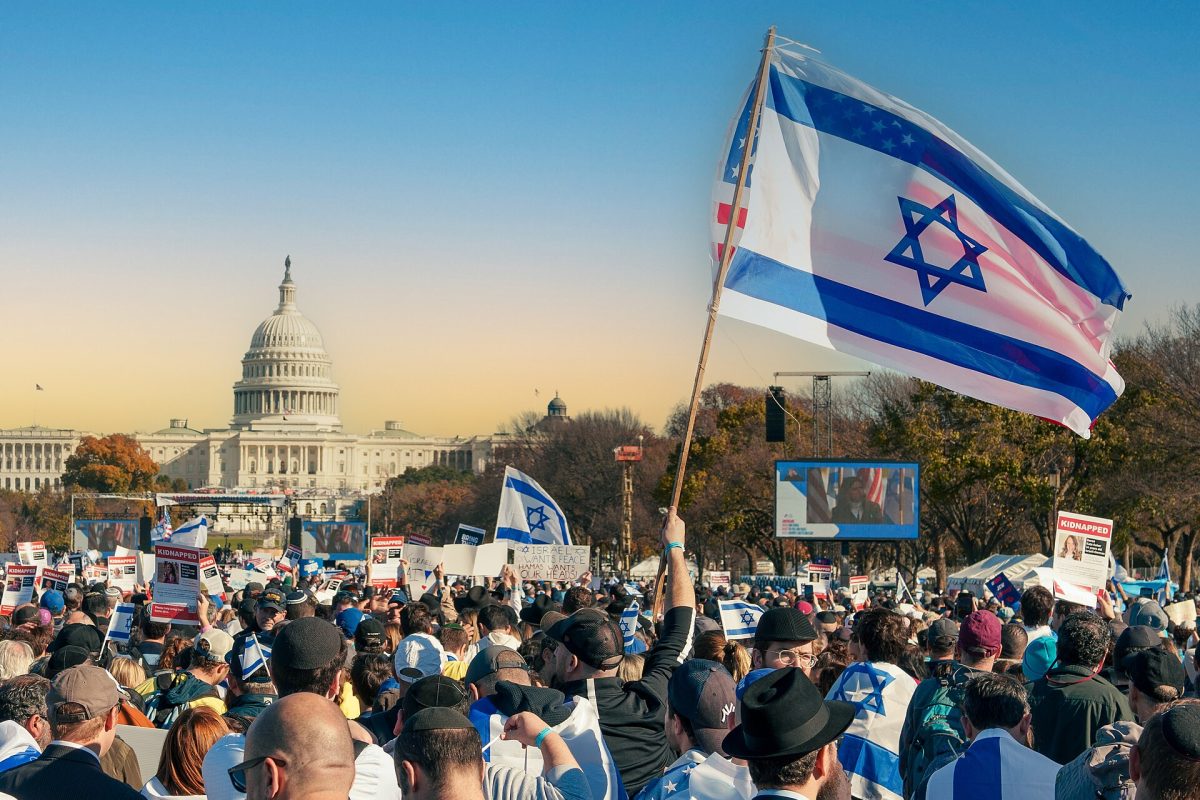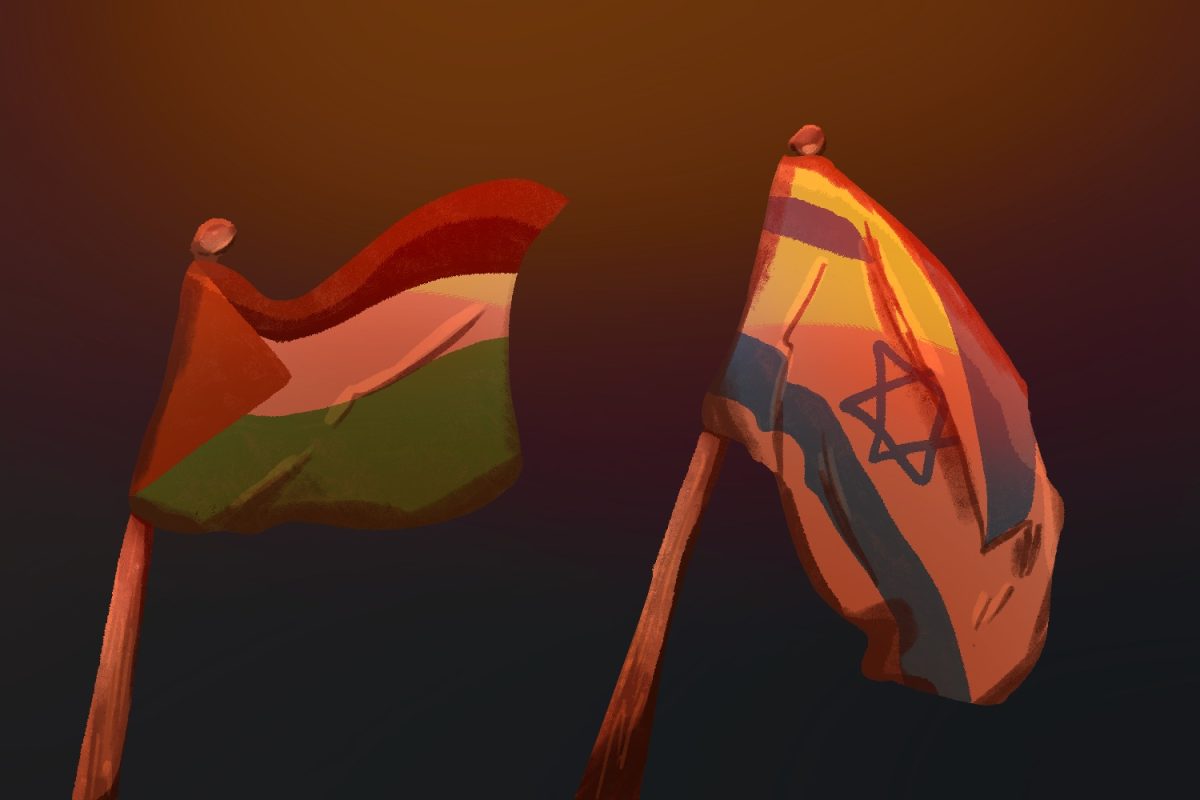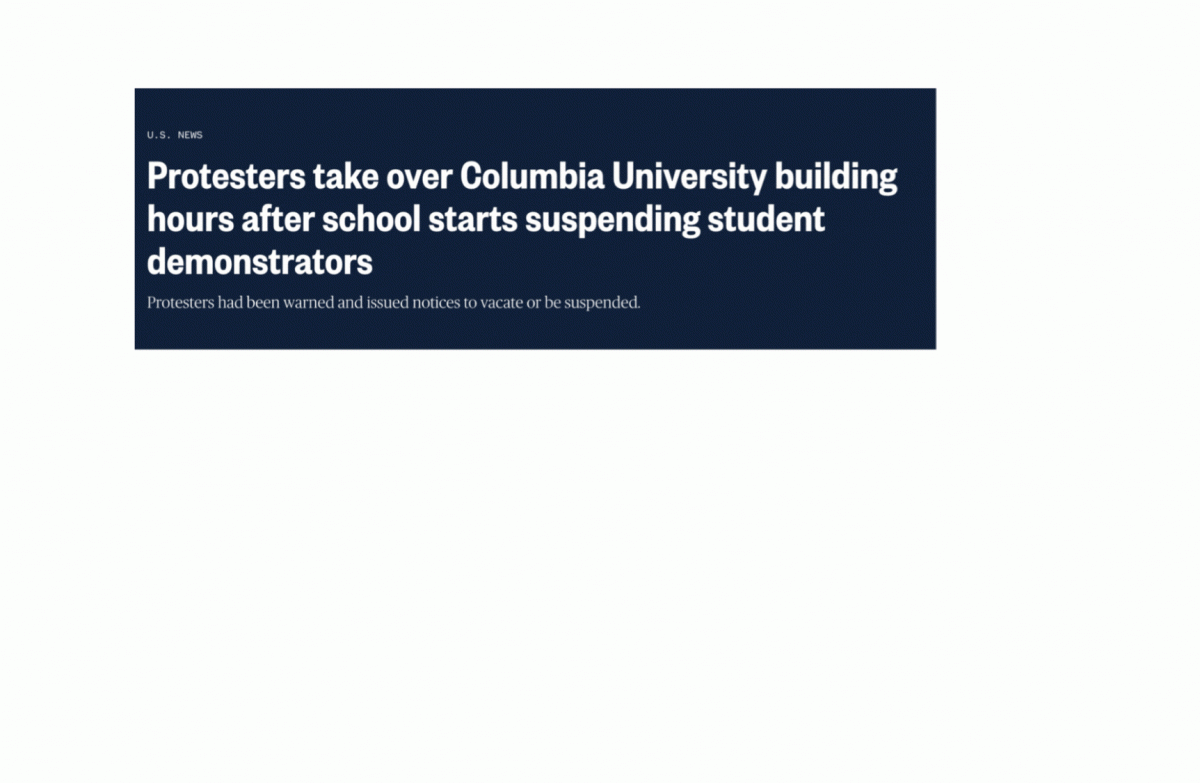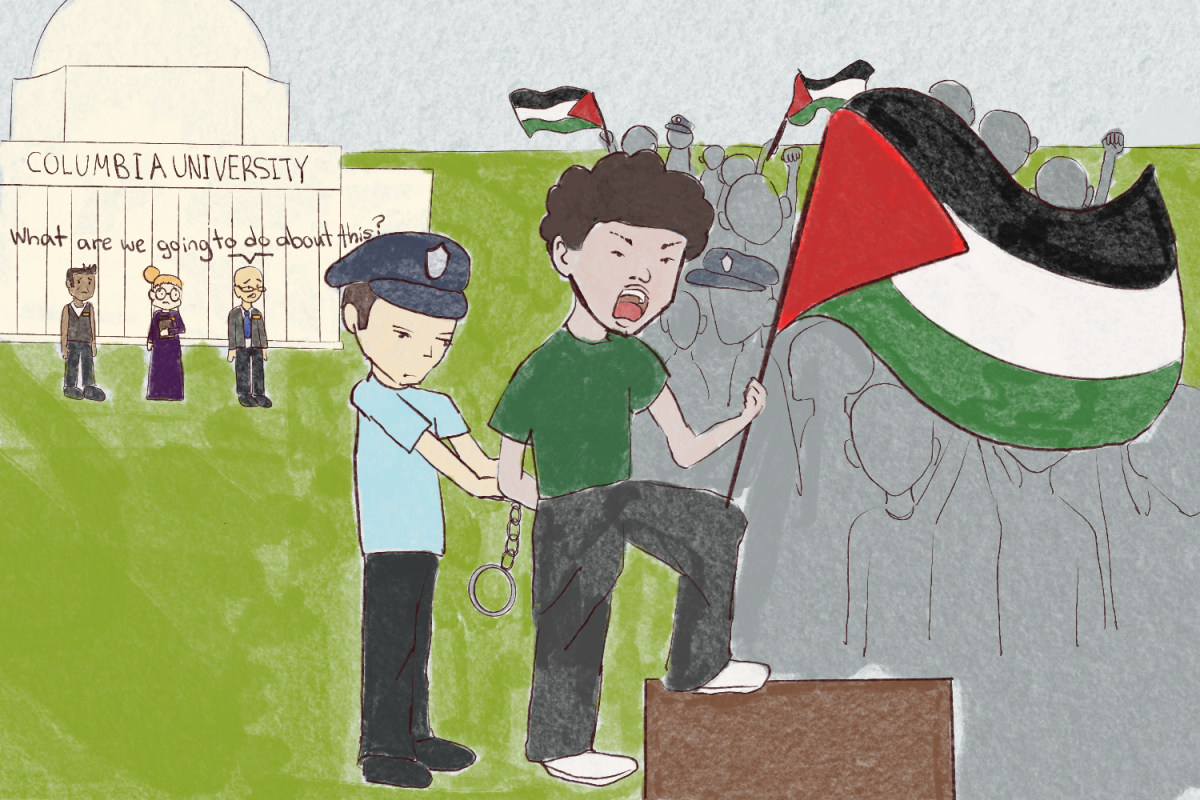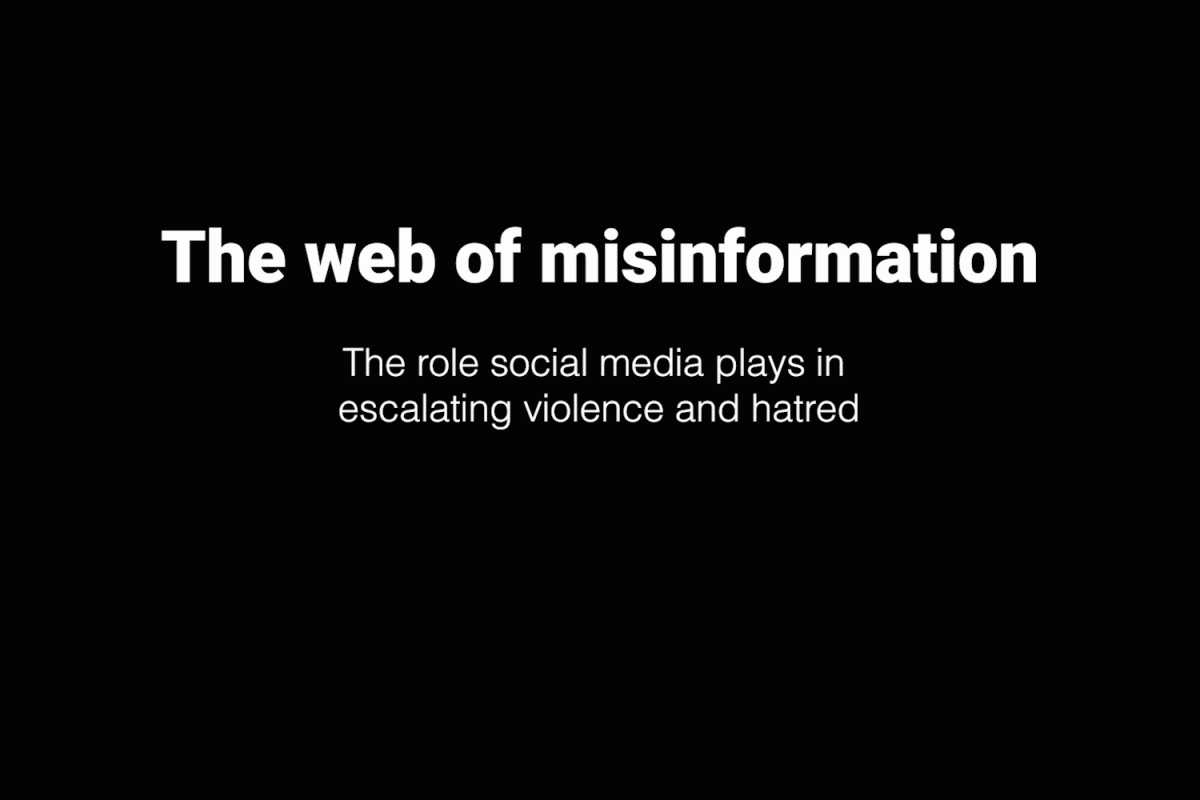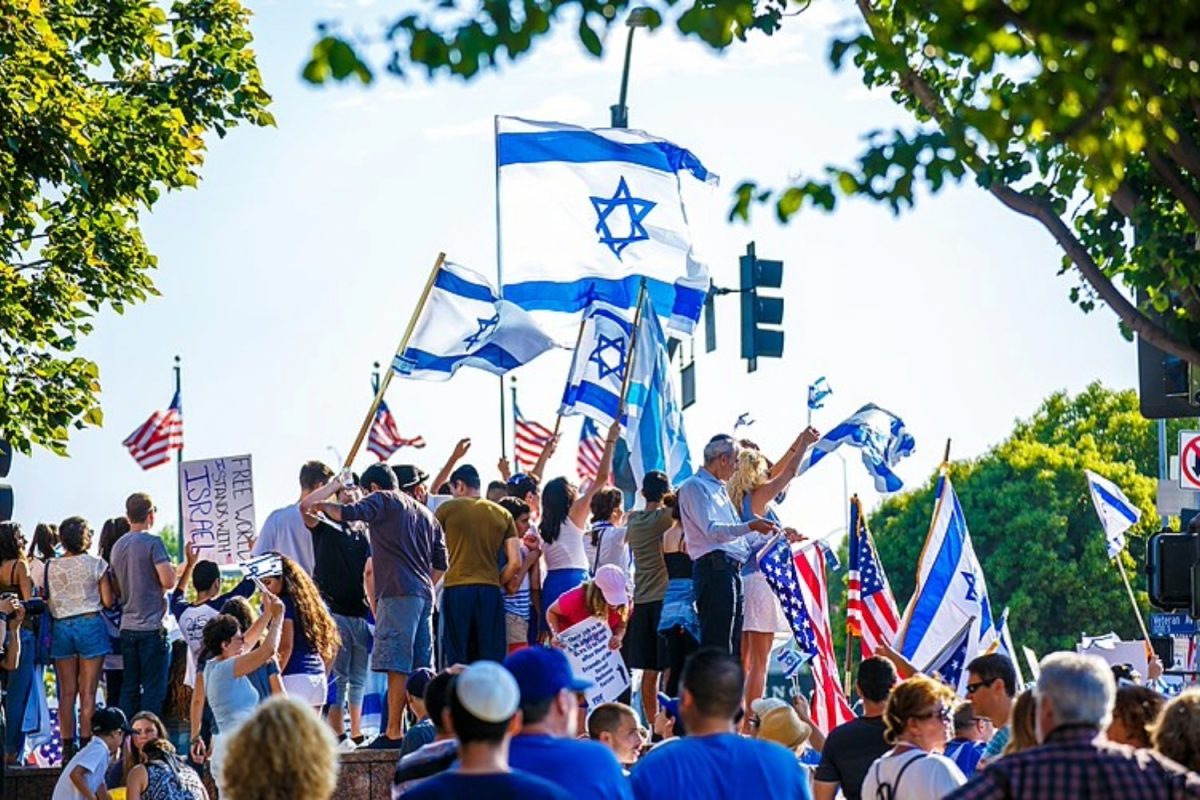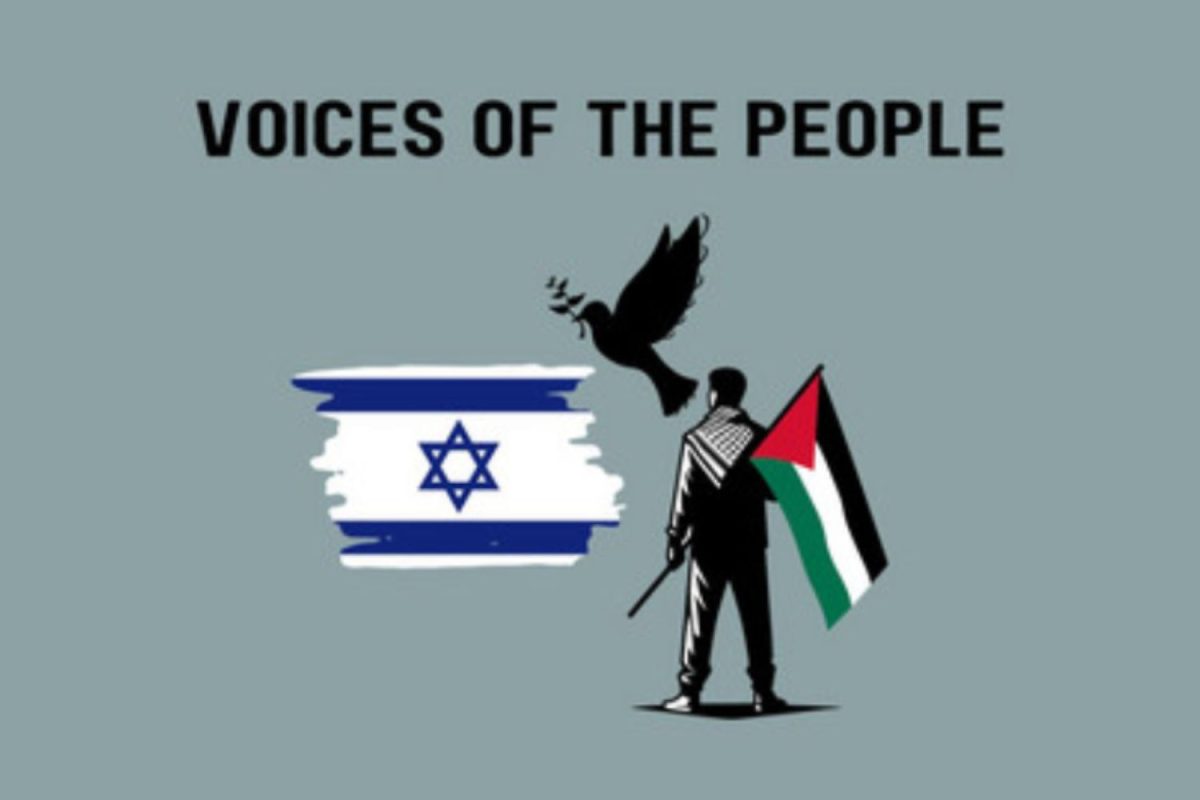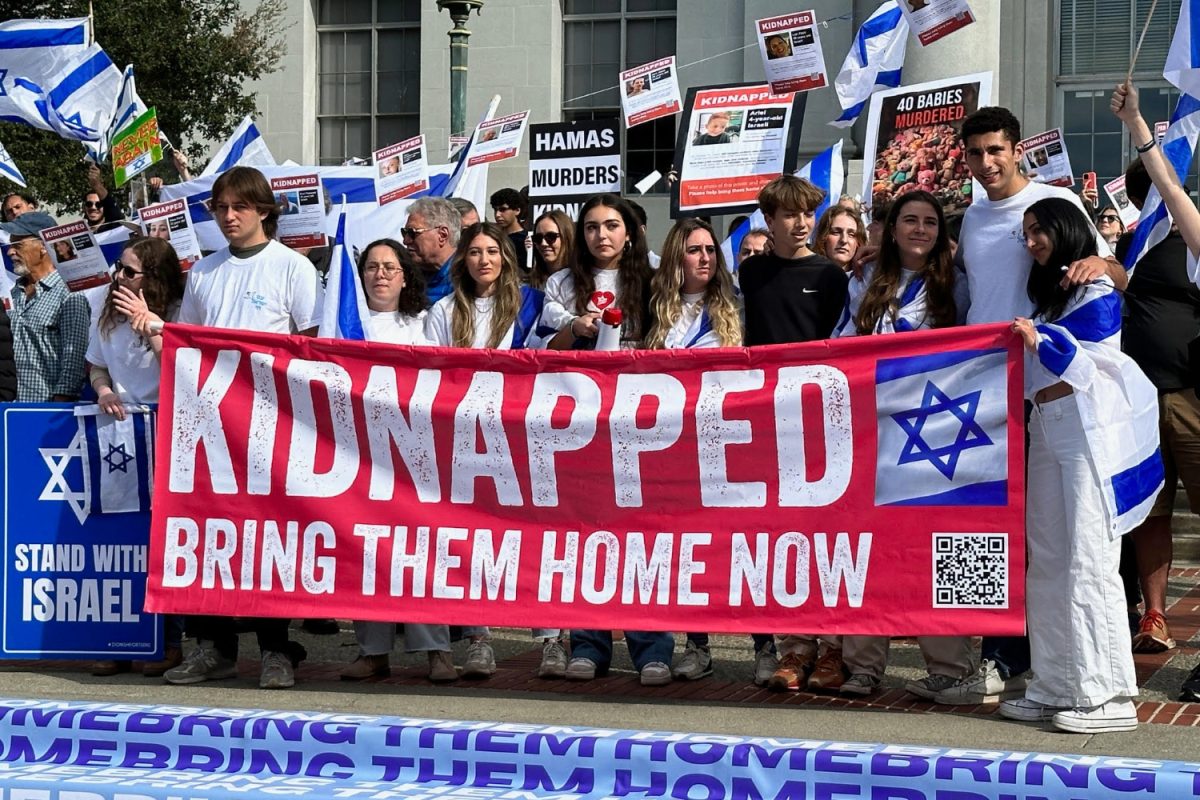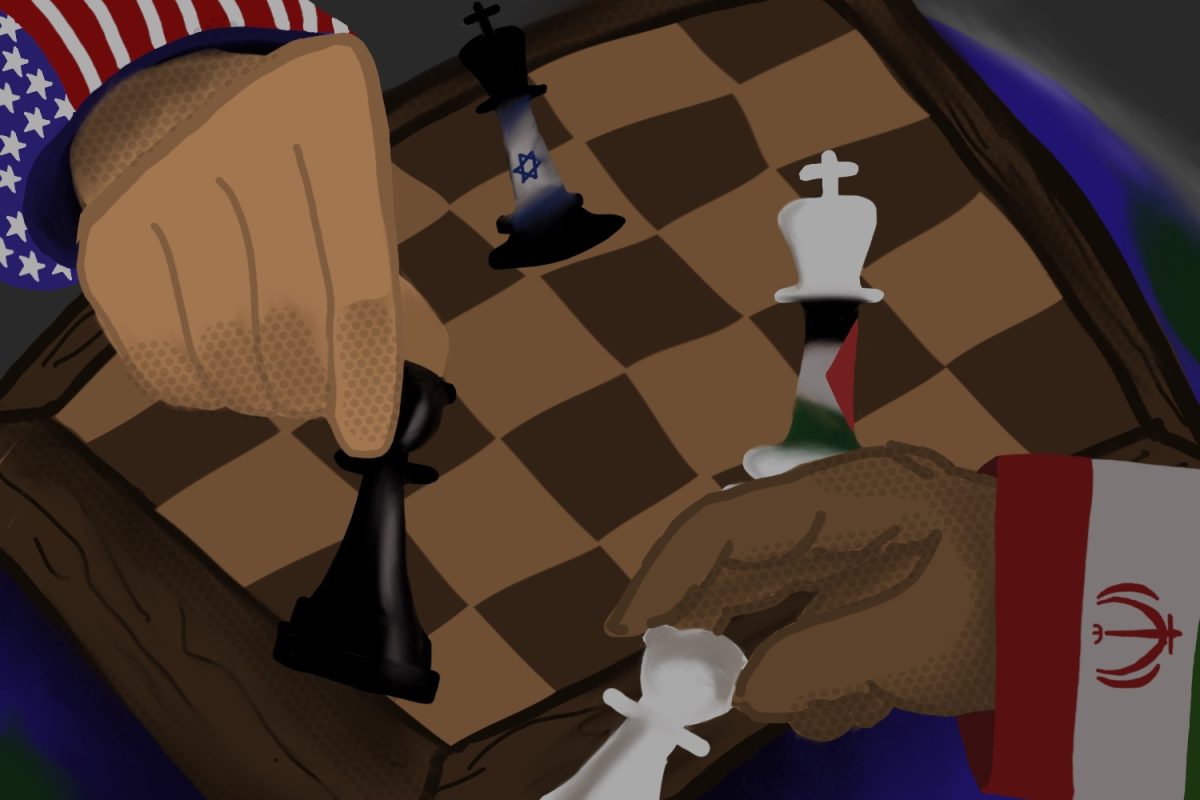The ongoing Israel-Hamas war brings up many questions about America’s involvement and raises varying political opinions and solutions regarding the issue due to its severity.
Currently, the United States’ focus is on providing humanitarian assistance to both Israelis and Palestinians. This includes negotiating hostage situations and working to improve ongoing refugee crises.
“The only priority of the United States is providing humanitarian support where needed and also trying to get American civilians back home safely,” said Todd Morgan, Lt. Colonel of the National Guard.
However, some believe America could be doing more to de-escalate the situation.
History of Israeli-Palestinian conflicts:
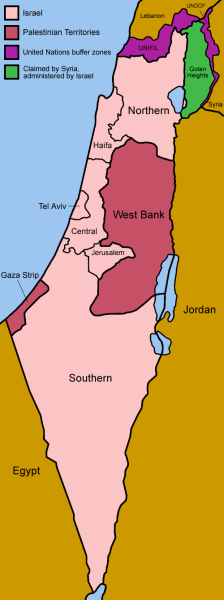
The Israeli-Palestinian conflict is rooted in a century-long territorial dispute over Jerusalem, a Middle Eastern region with great religious and historical significance to Christians, Jews, and Muslims.
In 1947, after years of Arab-Jewish violence, the U.N. General Assembly voted for the establishment of two states in Palestine, one Jewish and the other Arab. Shortly after, the Jewish community in Palestine declared Israel an independent state, prompting more Jews to emigrate and leading to a war launched by neighboring Arab states.
Many Palestinian Arabs, however, believe that Jewish people took over their ancestral land.
In the decades since, the Israeli-Palestinian dispute has resulted in continuous military conflicts. One of the most significant of these was the 1967 Six-Day War, which took place in Israel’s occupation of east Jerusalem, the West Bank, and Gaza, a narrow strip in modern-day Palestine.
In its aftermath, the U.N. Security Council adopted Resolution 242, which called for Israel to withdraw from occupied lands to secure and recognize borders in exchange for peace. The resolution lacked details but was a milestone, becoming the basis for future diplomacy to end the Arab-Israeli conflict.
Israel-Hamas war:
According to the Minority Rights Group International, 1.9 million Palestinians live in the Gaza Strip and 2.9 million in the West Bank. Israel also houses around 2 million Arab citizens.
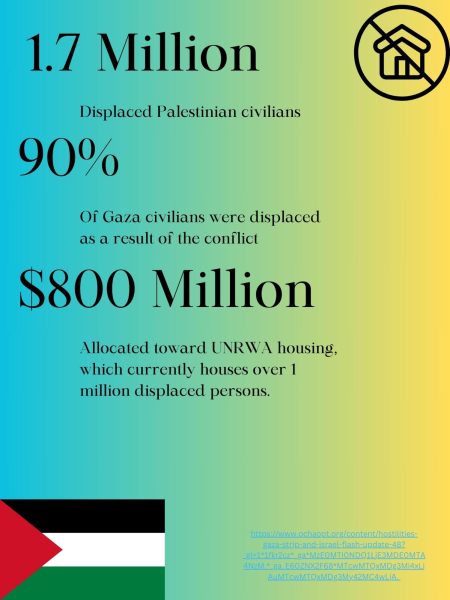
U.N. O.C.H.A. statistics show that over 1.7 million people in Gaza are estimated to be internally displaced. Of them, about 1 million are staying in at least 156 U.N.R.W.A. shelters across the Gaza Strip, which receive an annual budget of $800 million worldwide.
Hamas is a militant Palestinian group and one of the Palestinian territories’ two major political parties. In Oct. 2023, Hamas launched a massive surprise attack on southern Israel, killing more than 1,400 people and taking dozens more as hostages. Israel has declared war on the group in response and indicated its military is planning a long campaign to wipe it out entirely.
Many countries, including the U.S., have designated Hamas as a terrorist organization.
The U.S. Department of State has actively been sending aid to both the Palestinian and Israeli people currently requiring it. President Joe Biden recently announced that the U.S. is providing $100 million in humanitarian assistance for the Palestinian people in Gaza and the West Bank, as well as additional support if needed. Israel also receives military aid through the $3 billion annual U.S. assistance.
The United States has also provided significant assistance by helping refugees attempting to get out of the Gaza Strip and other war zones.
Cease-fire:
A large part of the war right now is centered around hostage holdings. The U.S., along with Israel, have negotiated a temporary cease-fire in the war zone in an ongoing attempt to free both Israeli and American hostages held by Hamas from the Oct. 7 attack, which numbers over 240 people.
The cease-fire, which began Nov. 24, has been extended a few times and is likely to be developed more as Hamas continues to free hostages in exchange for prisoners. The cease-fire has proved highly successful, reportedly releasing over 100 civilian hostages so far.
Viewpoints of the war:
Amid the war, many people have vocalized strong viewpoints and potential solutions to help with future Middle Eastern conflicts and establish peace actively concerning America.
“America should work towards closer relationships with other Middle Eastern states. To counter Iranian influence in the region, America needs to show other Middle Eastern states that they can rely on America,” said Carlmont sophomore Adam Smith.
Many Americans feel very strongly about both sides of the war, with many criticizing Hamas.
“Hamas is a terrorist organization. They must be called out for what they are: evil,” said California Gov. Gavin Newsom in a post on X, formerly known as Twitter.
Oakland recently held a city council meeting regarding their stance on the war, according to statements taken by The Guardian. Some regarded Hamas’ attacks as acts of self-defense, and many were in support of Palestine, justifying their efforts as self-defense.
The pro-Israel group Jewish Community Relations Council (JCRC) responded by saying remarks like that are a disgrace.
Others argued that Oakland taxpayers shouldn’t be funding weapons for Israel when the money could be used for problems within the city, such as housing people experiencing homelessness.
Many were quick to criticize and debate all issues discussed in the meeting, but it ultimately ended in support of a cease-fire solution.
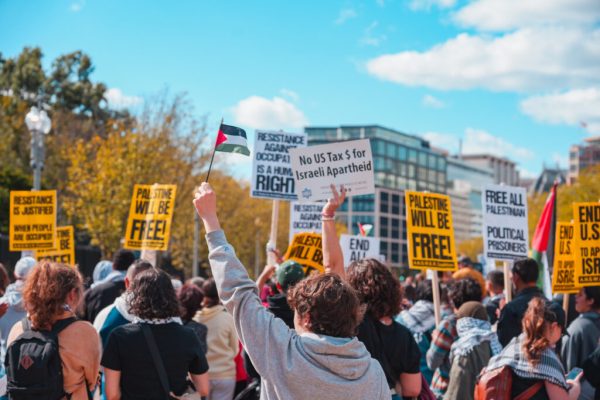
However, others focus on condemning Israel for the almost 10,000 innocent Palestinians killed in the crossfire.
According to an expert from the U.N. regarding the Palestinian genocide, “Israel has already carried out mass ethnic cleansing of Palestinians under the fog of war. Again, in the name of self-defense, Israel is seeking to justify what would amount to ethnic cleansing.”
The Free Palestine Movement is another significant point of view on the war, which focuses on the genocide of Palestinian and Syrian people and has actively been against Israel’s territorial position since 2003.
Many people identify with the movement and believe that the war should end, ensuring human rights for Palestinians and ensuring future prosperity. There are a significant number of protests happening around the world, especially in America.
“I’m very vocal about civil rights in general, especially about black people. But now I feel it’s time to focus more on what’s happening in Palestine. To me, it’s the same thing. They’re getting killed and pushed out, and they don’t have their rights. I want what’s right for everyone,” said protester and civil rights activist Ramon Henry in an interview with Dallas Weekly.
This conflict has resonated with many people and, though not intended to be a political issue, has sparked significant debate worldwide.
Generally, most of the efforts lie within the safety and assistance of all innocent civilians in the warzone area, as most hope for a reinstatement of the cease-fire.
“I understand the desire for a cease-fire now because too many people are dying; I understand wanting civilians not to be killed — who could say no to that?” said City of Oakland Councilmember Dan Kalb.

